Microplastic Threat in Disposable Gallons: Greenpeace Report
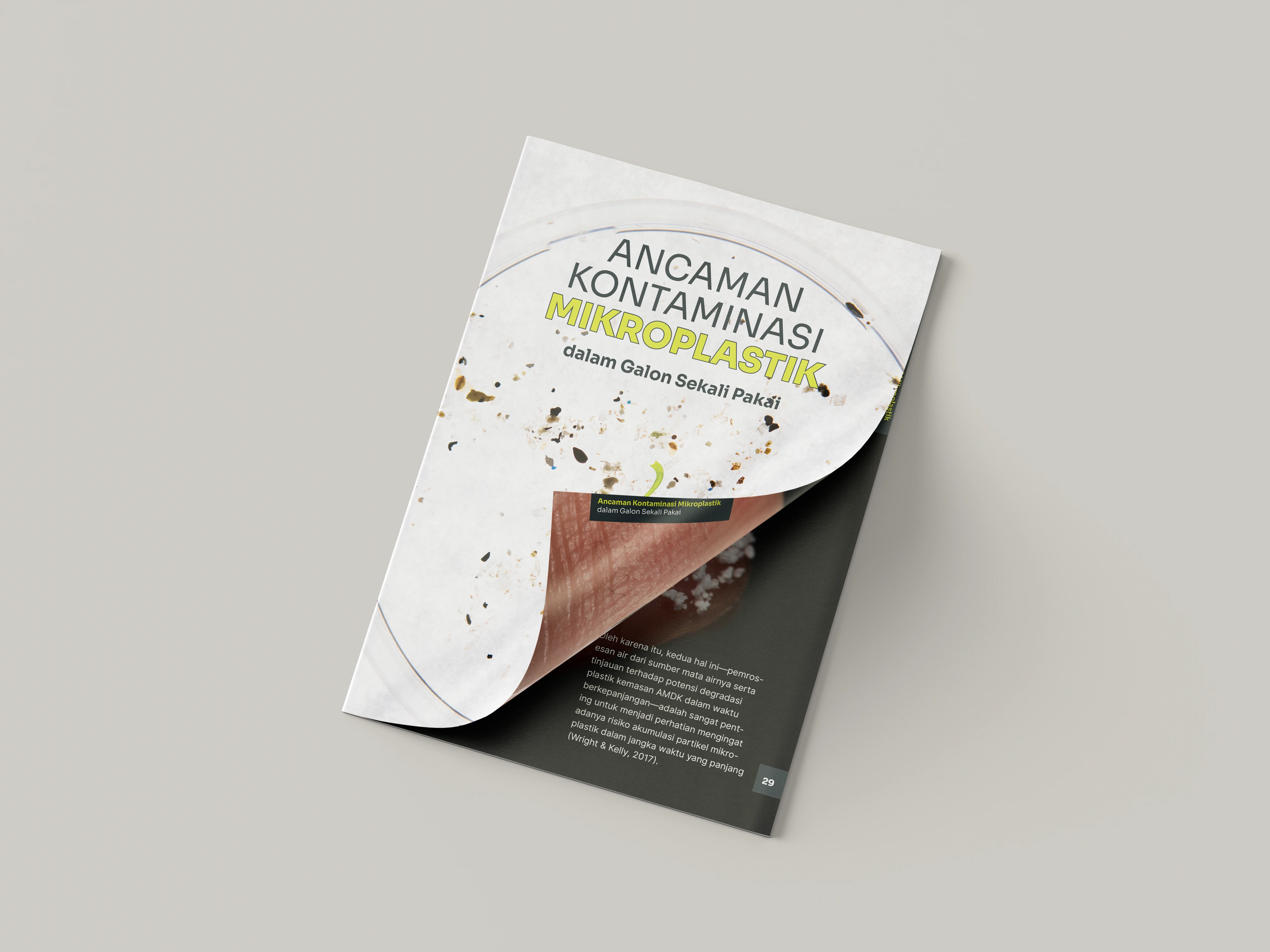
Table of Contents
A. Project Overview
This visual report, a collaboration with Greenpeace Southeast Asia, visually communicates the findings of a 2021 University of Indonesia laboratory study on disposable water gallons in the Greater Jakarta area.
The research revealed significant microplastic contamination in tested gallons, with levels ranging from 85 to 95 million particles per liter, composed of PET plastic similar to the packaging itself.
While these levels were within WHO safety limits, the report highlights
the potential long-term health risks associated with widespread consumption, estimating daily human exposure based on a survey.
Given that 31% of Indonesians rely on bottled water as their primary source, the report emphasizes the urgent need for producers to prioritize packaging quality and explore alternative delivery methods to mitigate health and environmental concerns, as advocated by Greenpeace Indonesia.
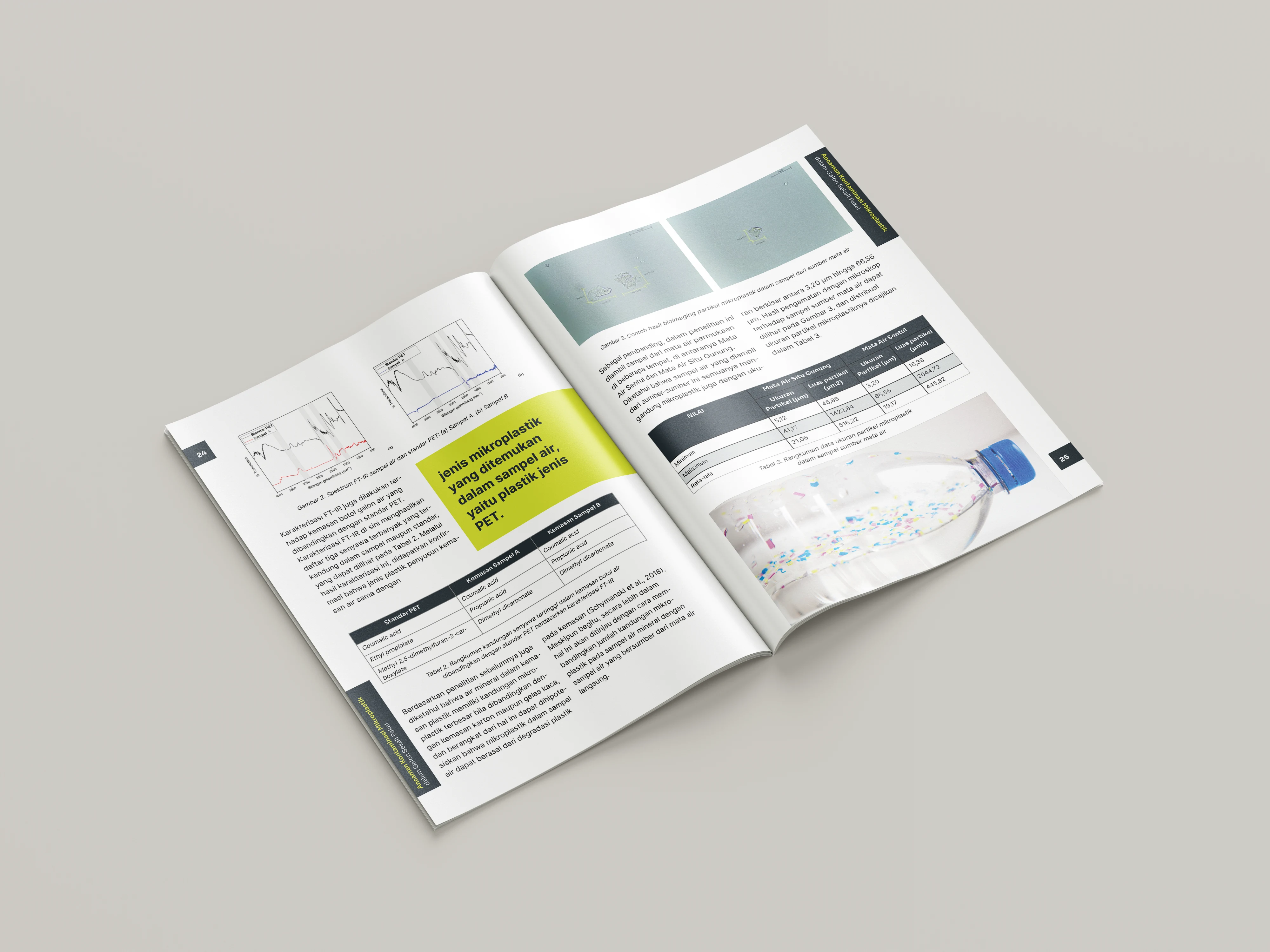
B. What I Did?
For this Greenpeace Southeast Asia report on microplastic contamination in disposable water gallons, I translated complex scientific data into an accessible and engaging visual narrative.
Utilizing Adobe InDesign, I established a clear visual hierarchy through meticulous layout design and consistent typographic styles based on Sora and Inter fonts. Information was presented effectively using custom-designed tables and compelling visual elements. My role also involved basic image retouching (cropping, contrast adjustments) to ensure visual clarity and impact, ultimately making critical research findings readily understandable to a wider audience.
C. Styleguide

D. Design Results
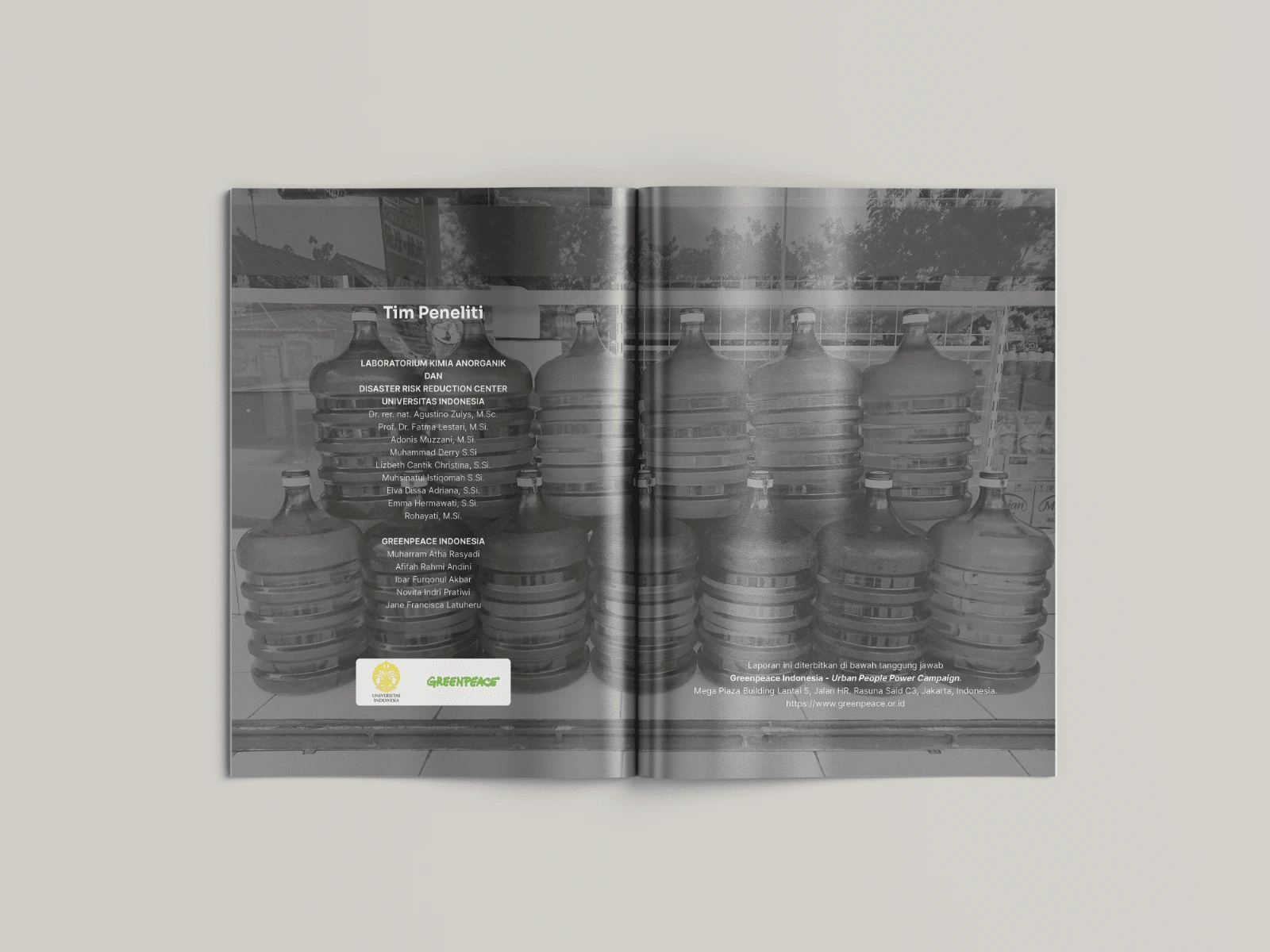
Page 2 - 3
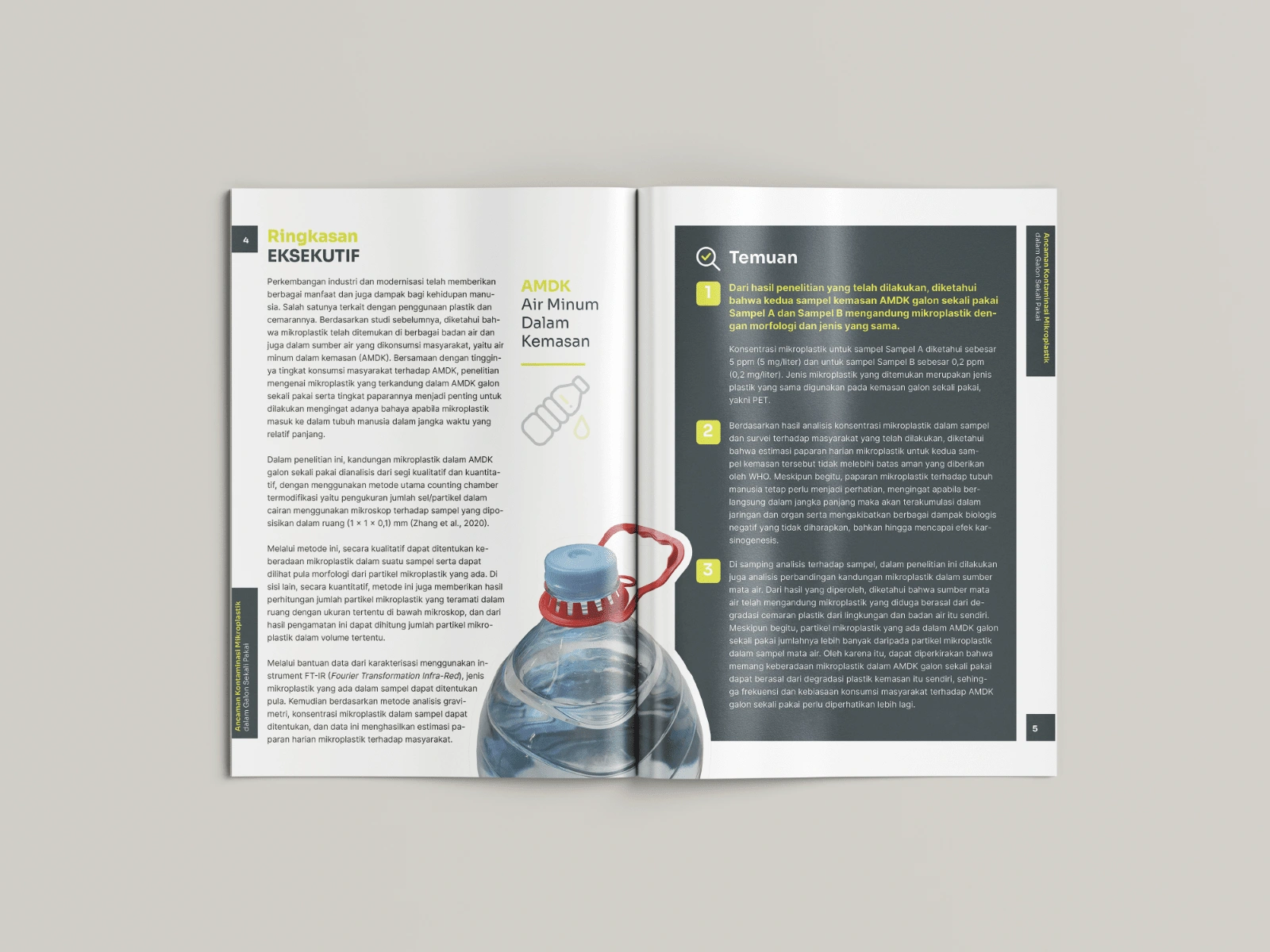
Page 4 - 5
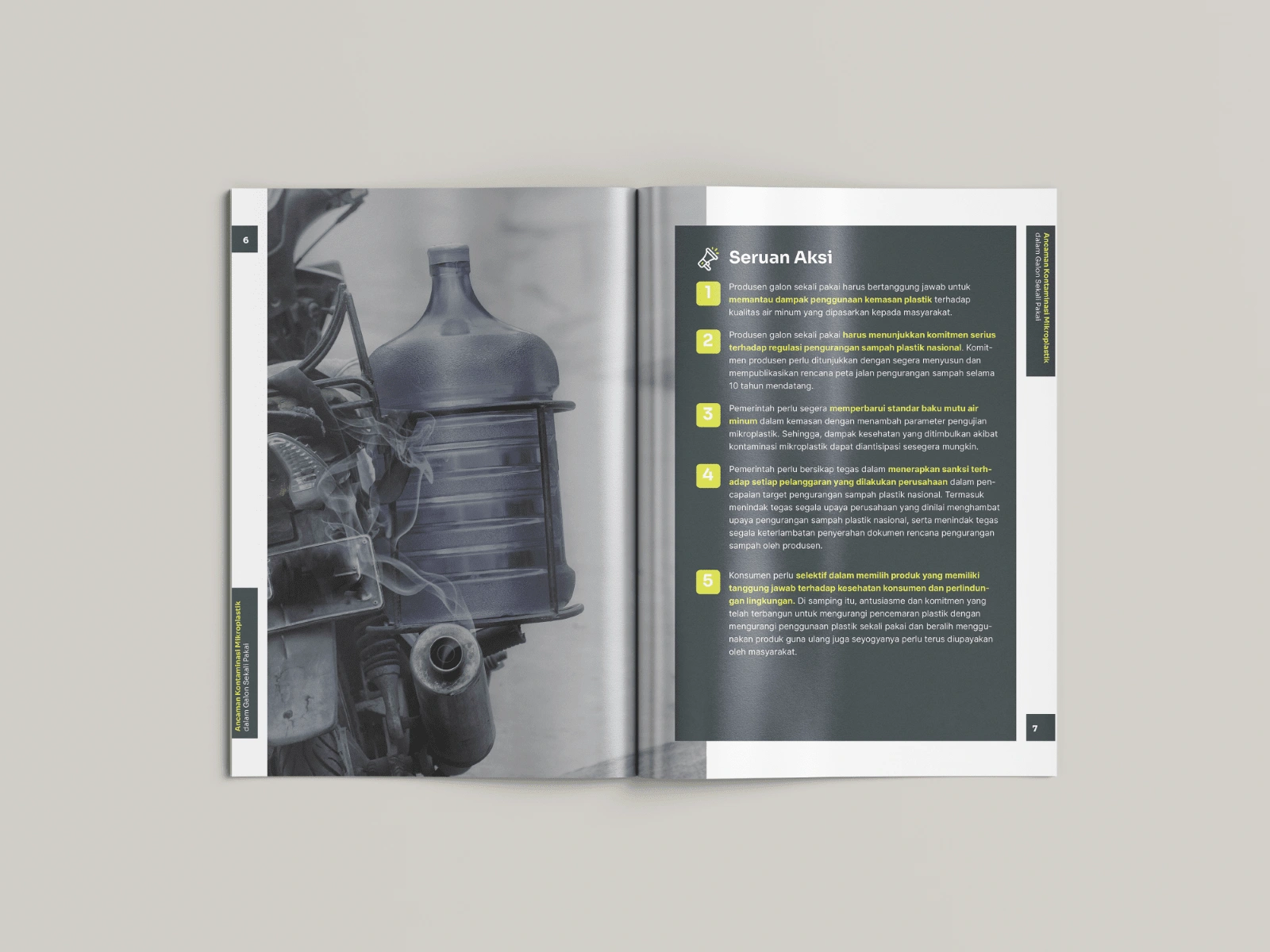
Page 6 - 7
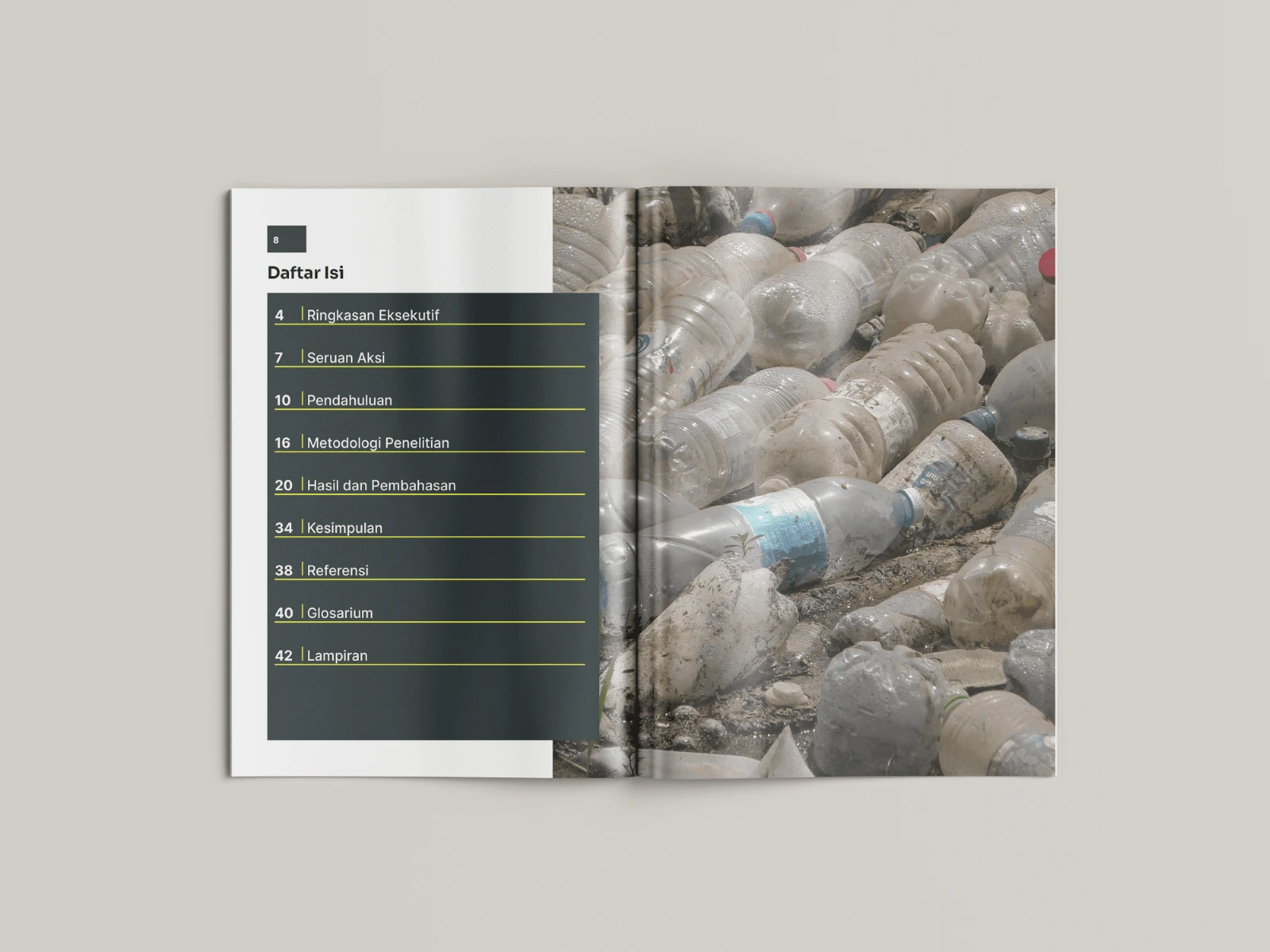
Page 8 - 9
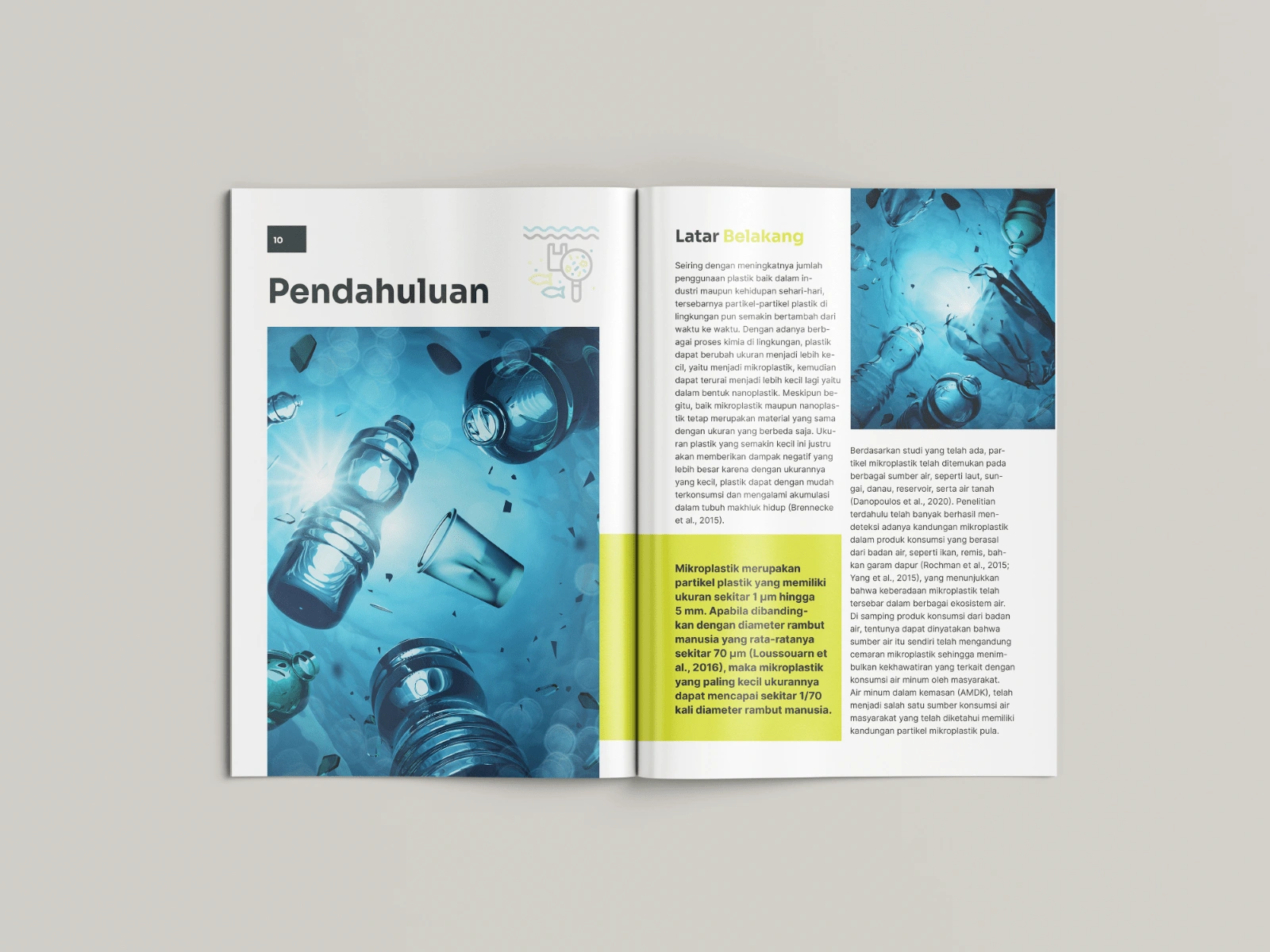
Page 10 - 11
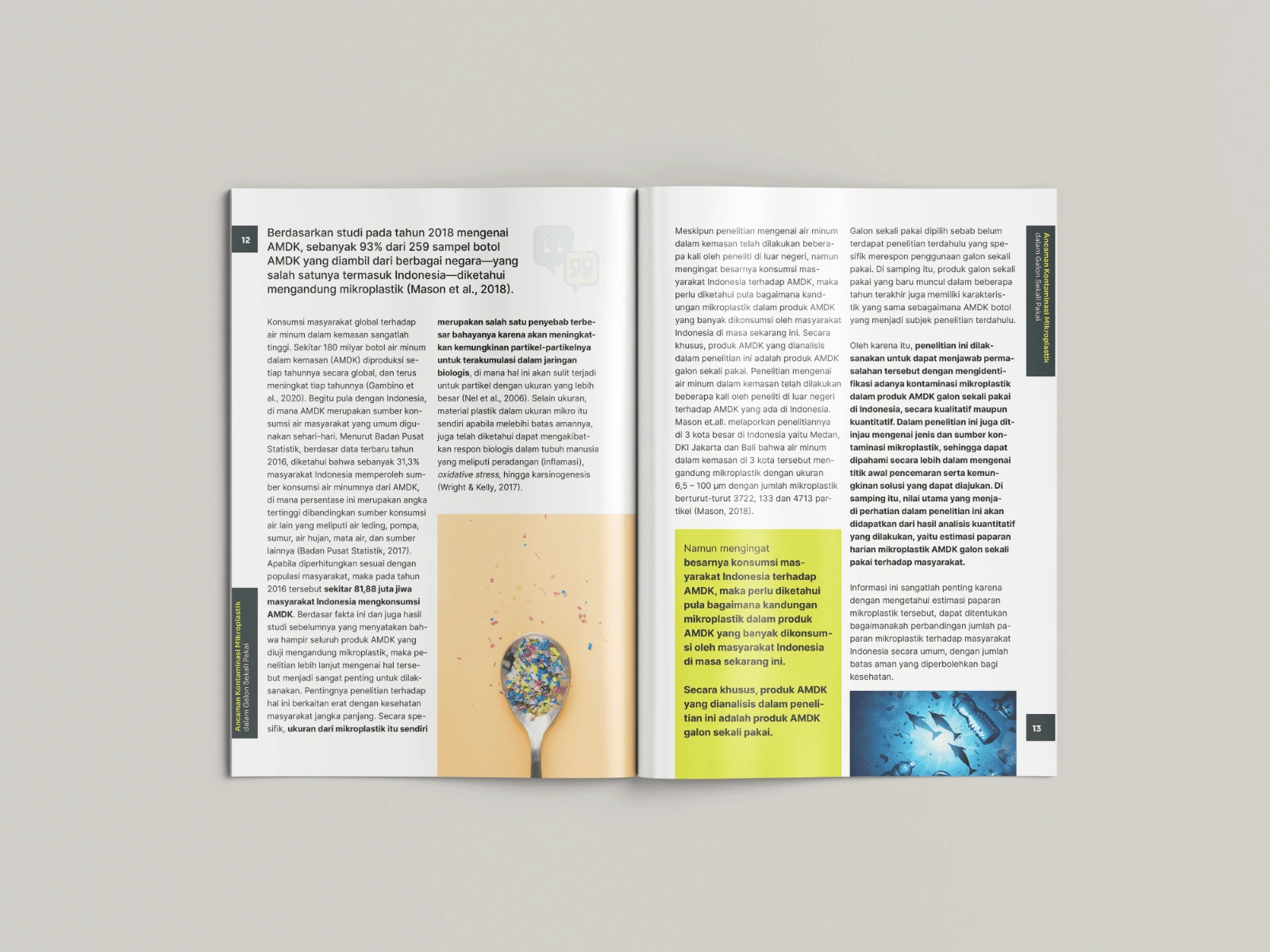
Page 12 - 13
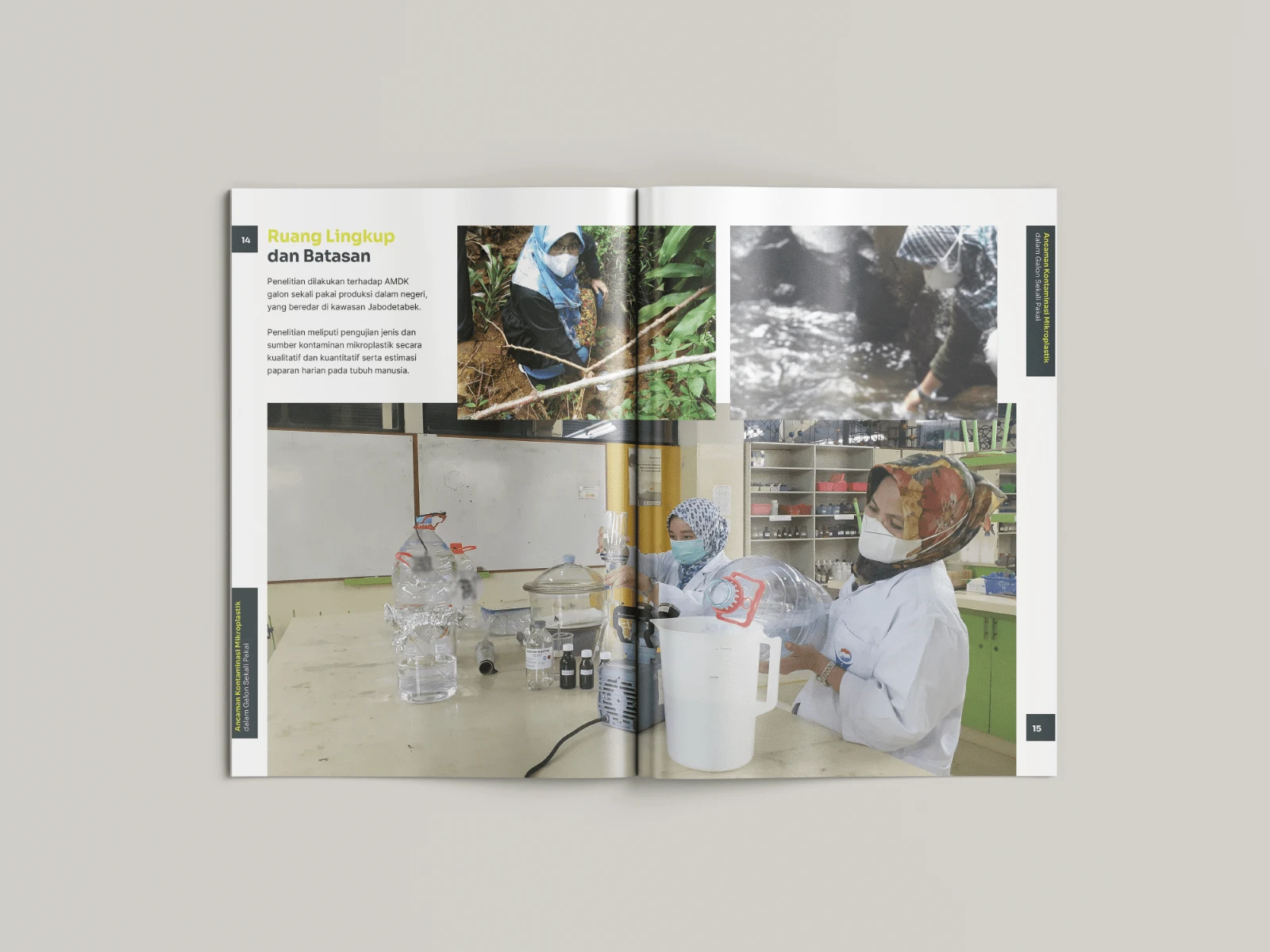
Page 14 - 15
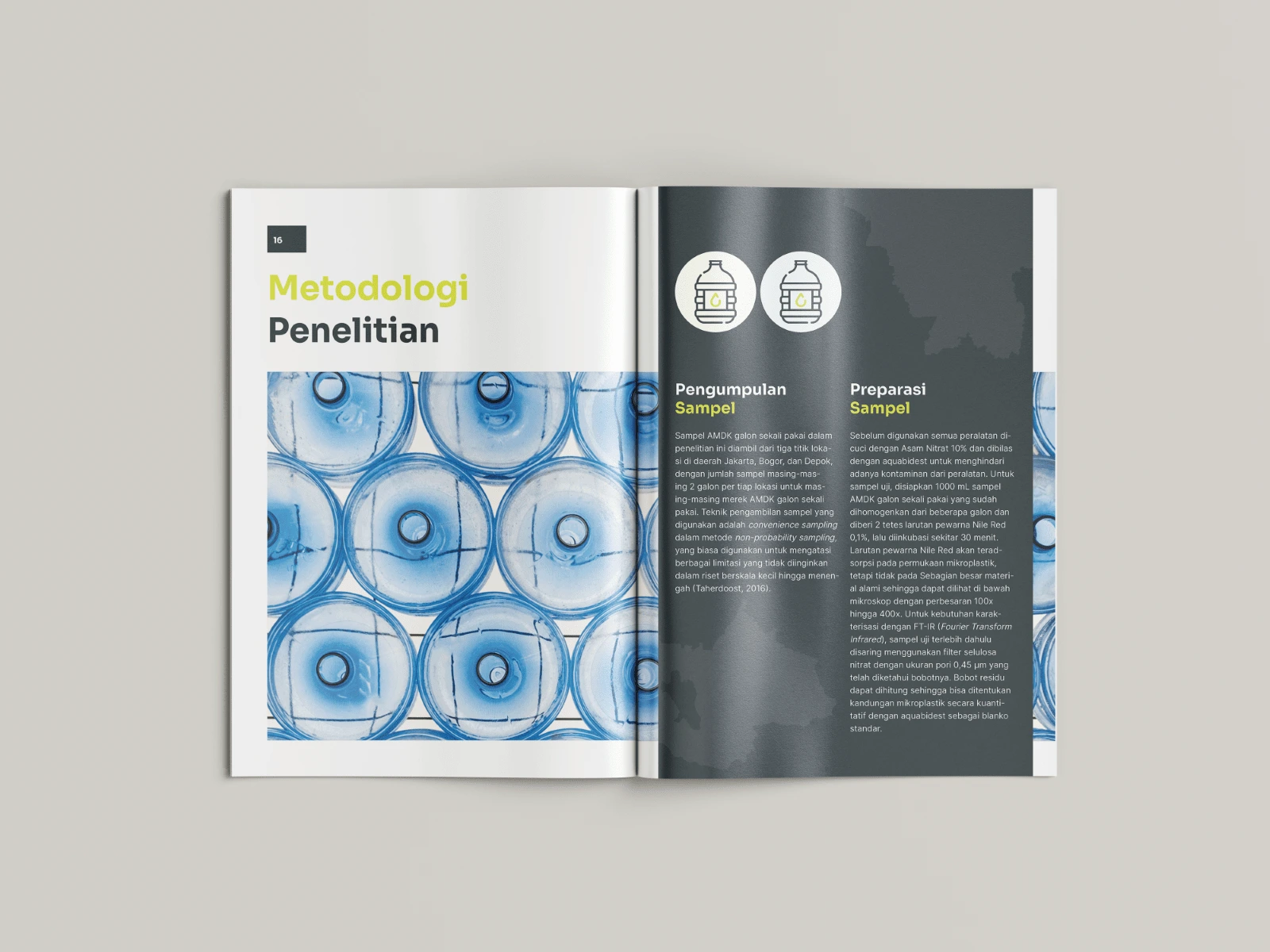
Page 16 - 17
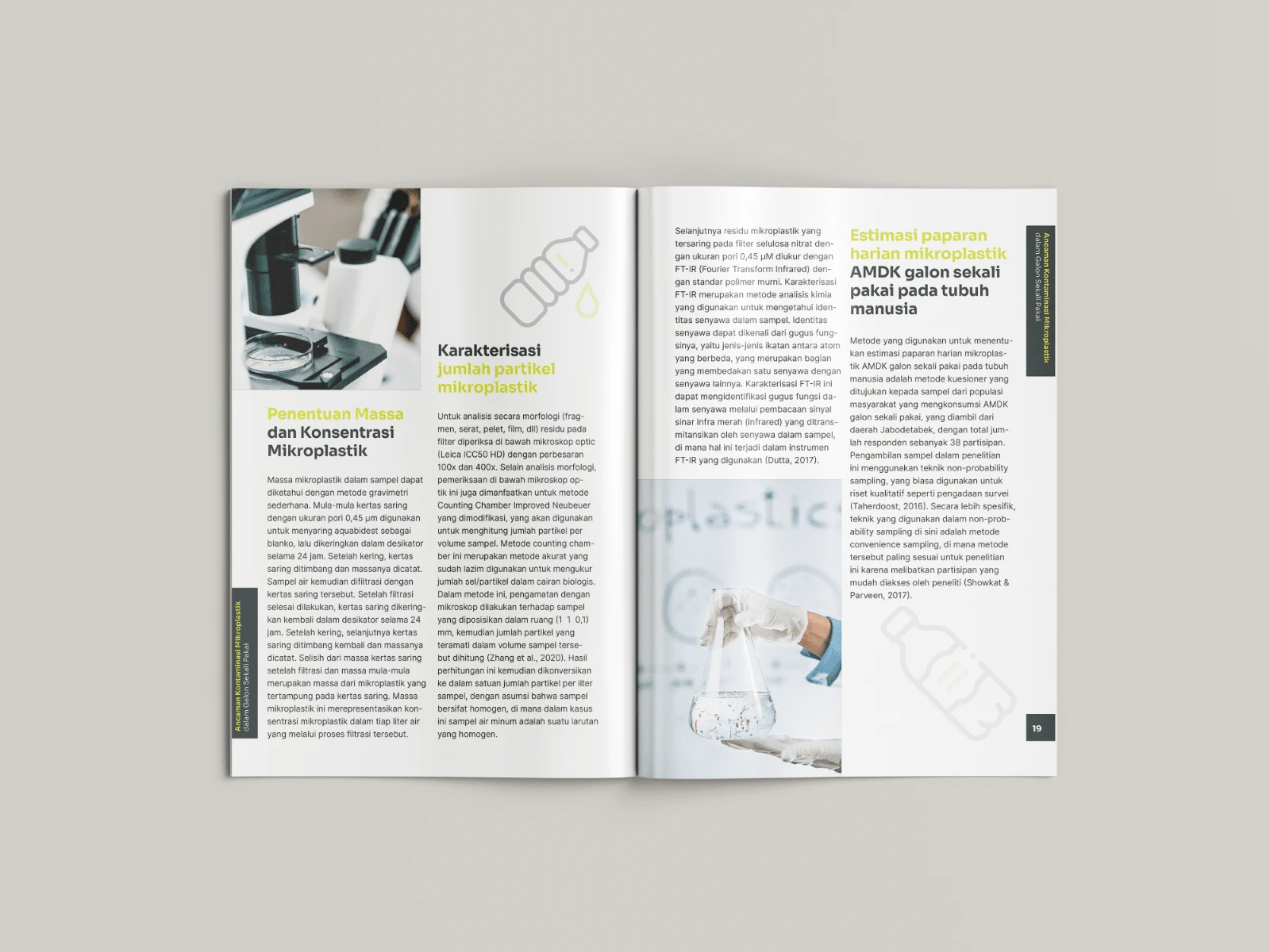
Page 18 - 19
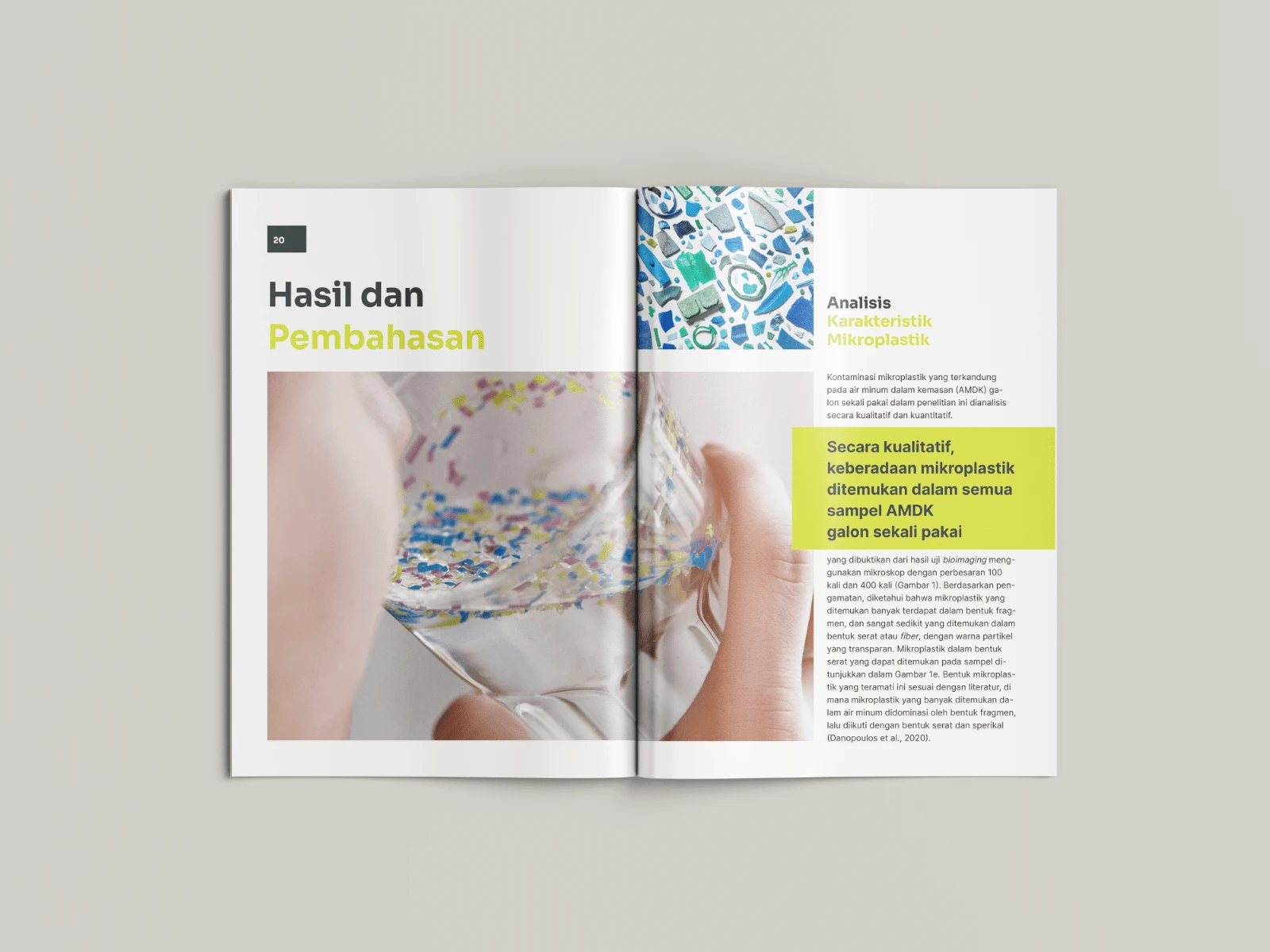
Page 20 - 21
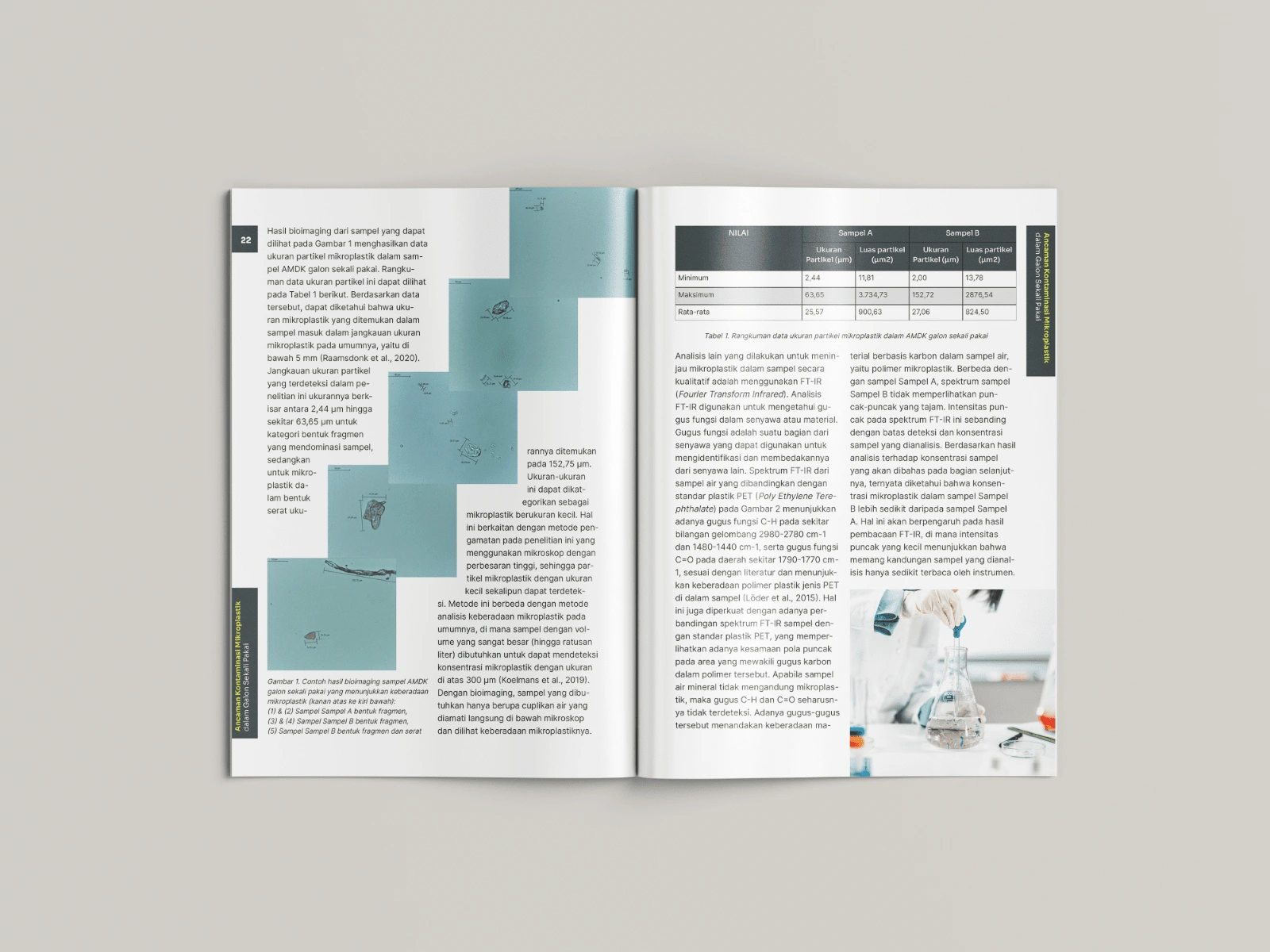
Page 22 - 23
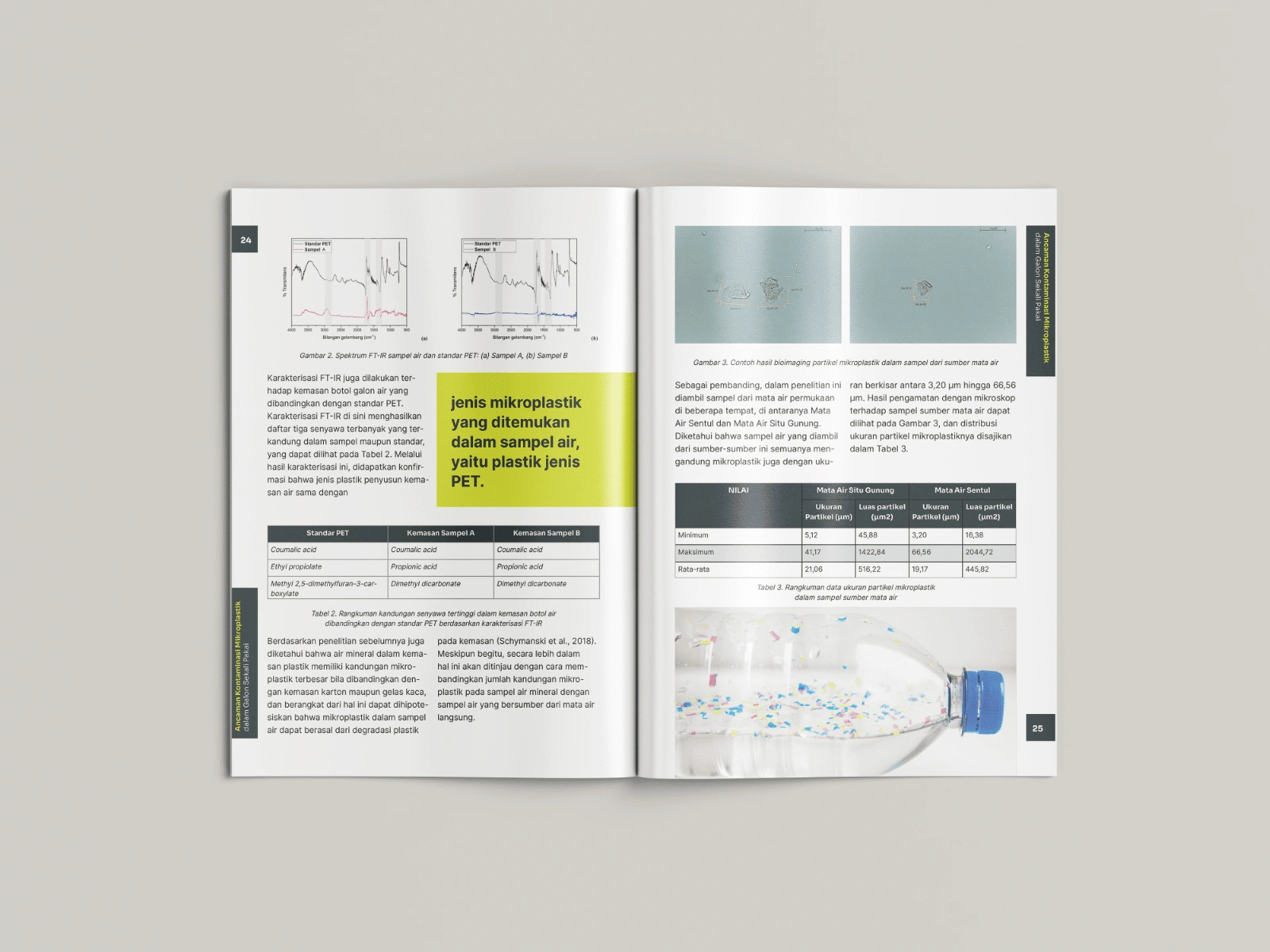
Page 24 - 25
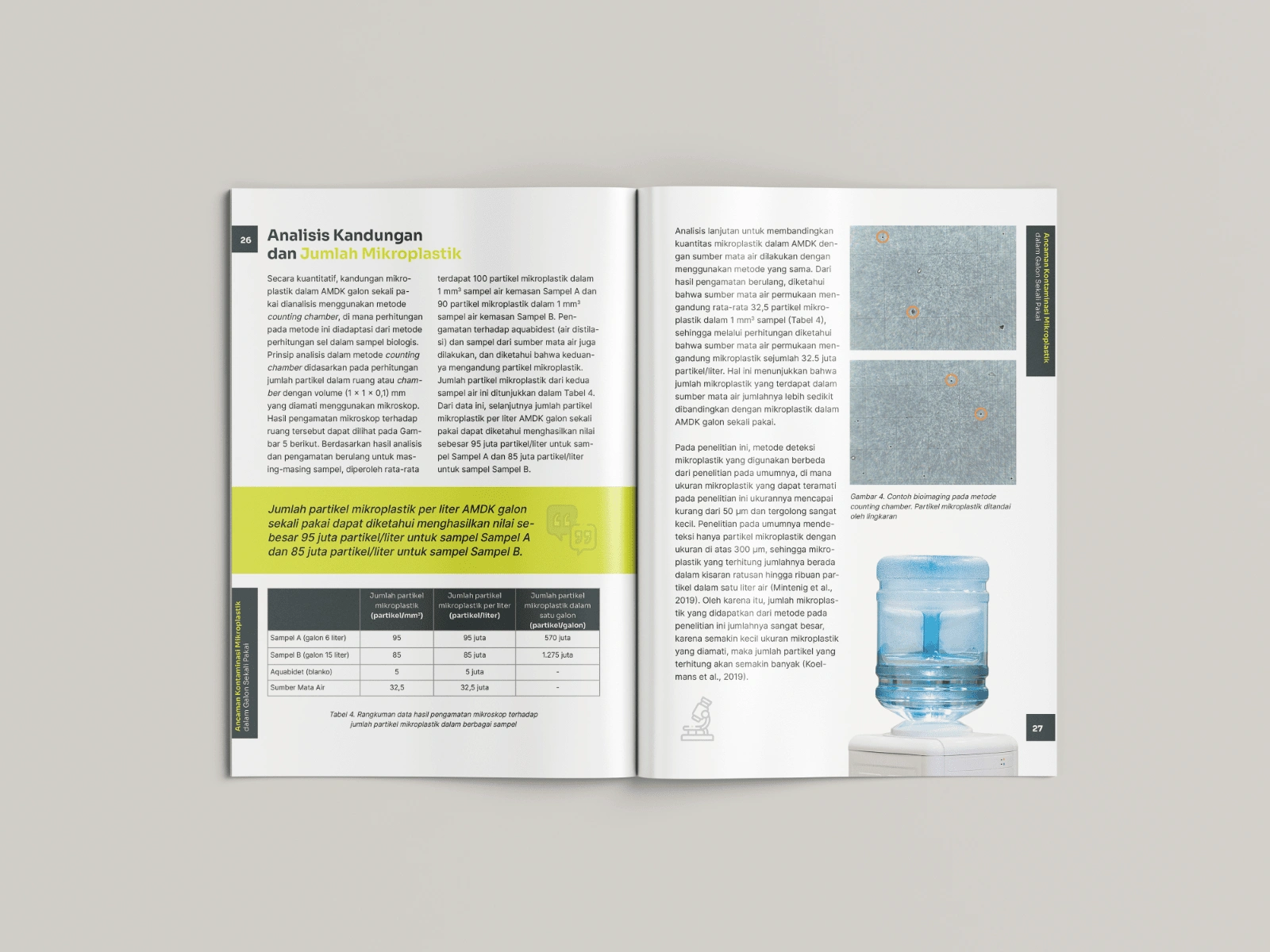
Page 26 - 27
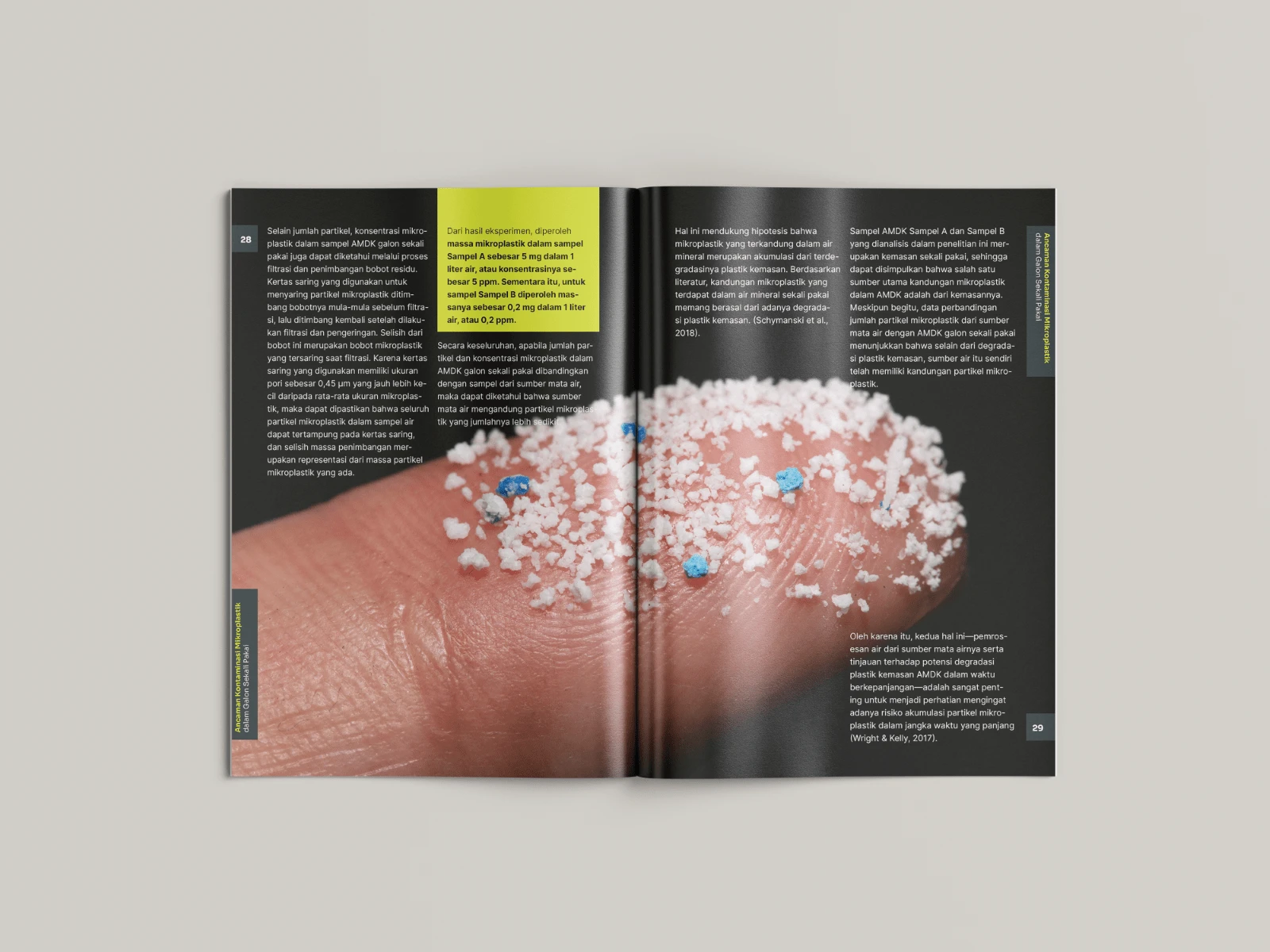
Page 28 - 29
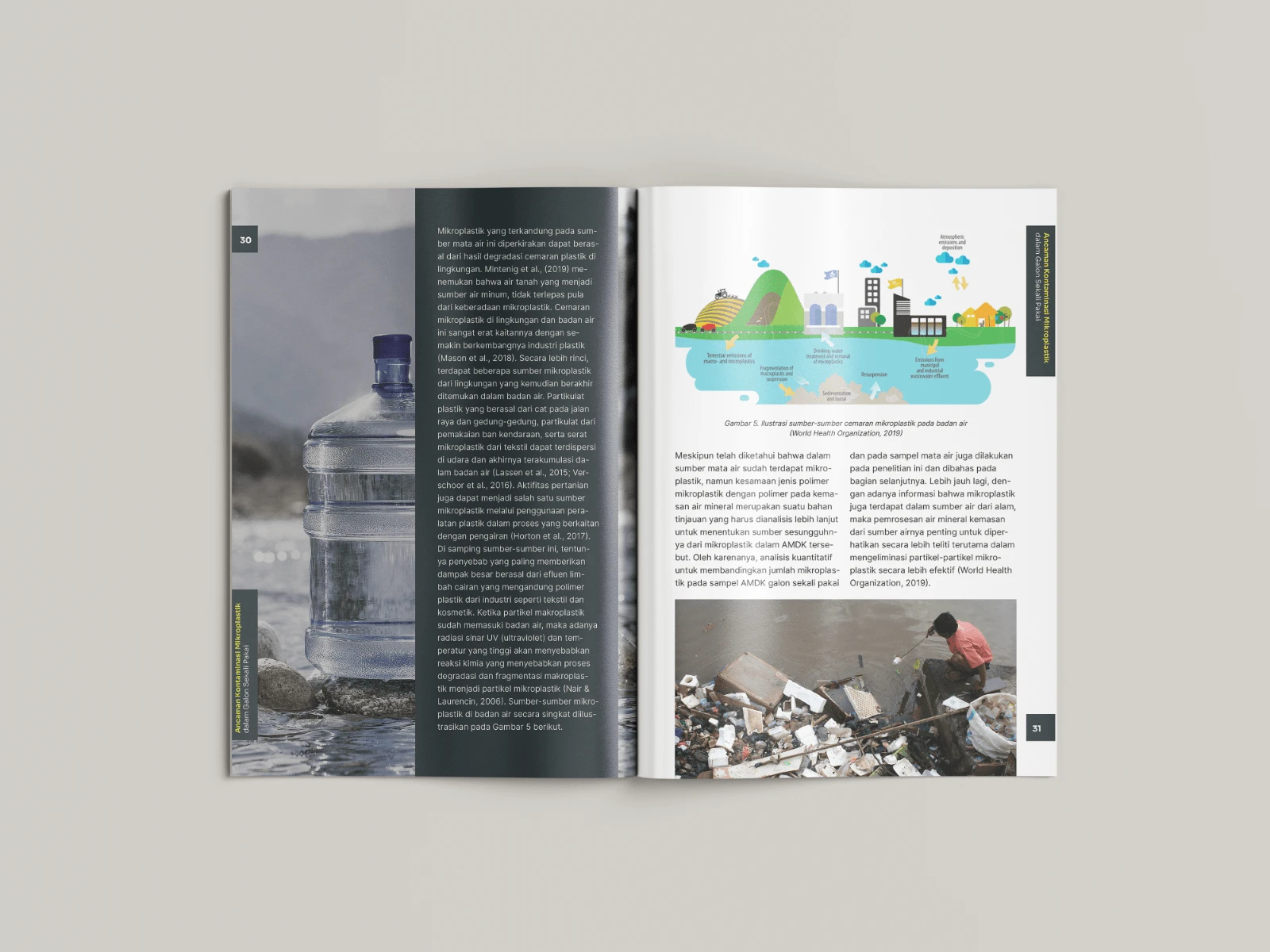
Page 30 - 31
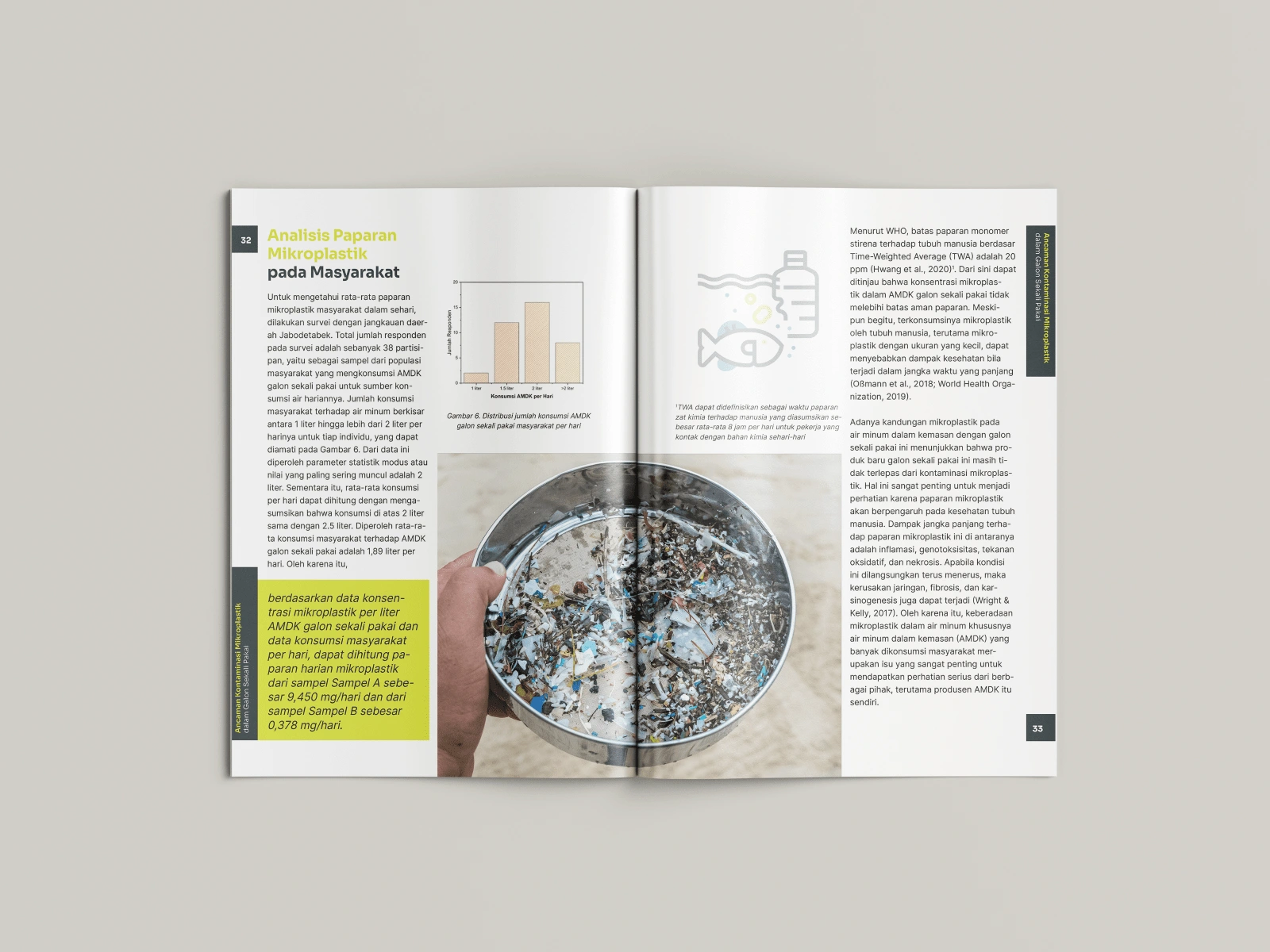
Page 32 - 33
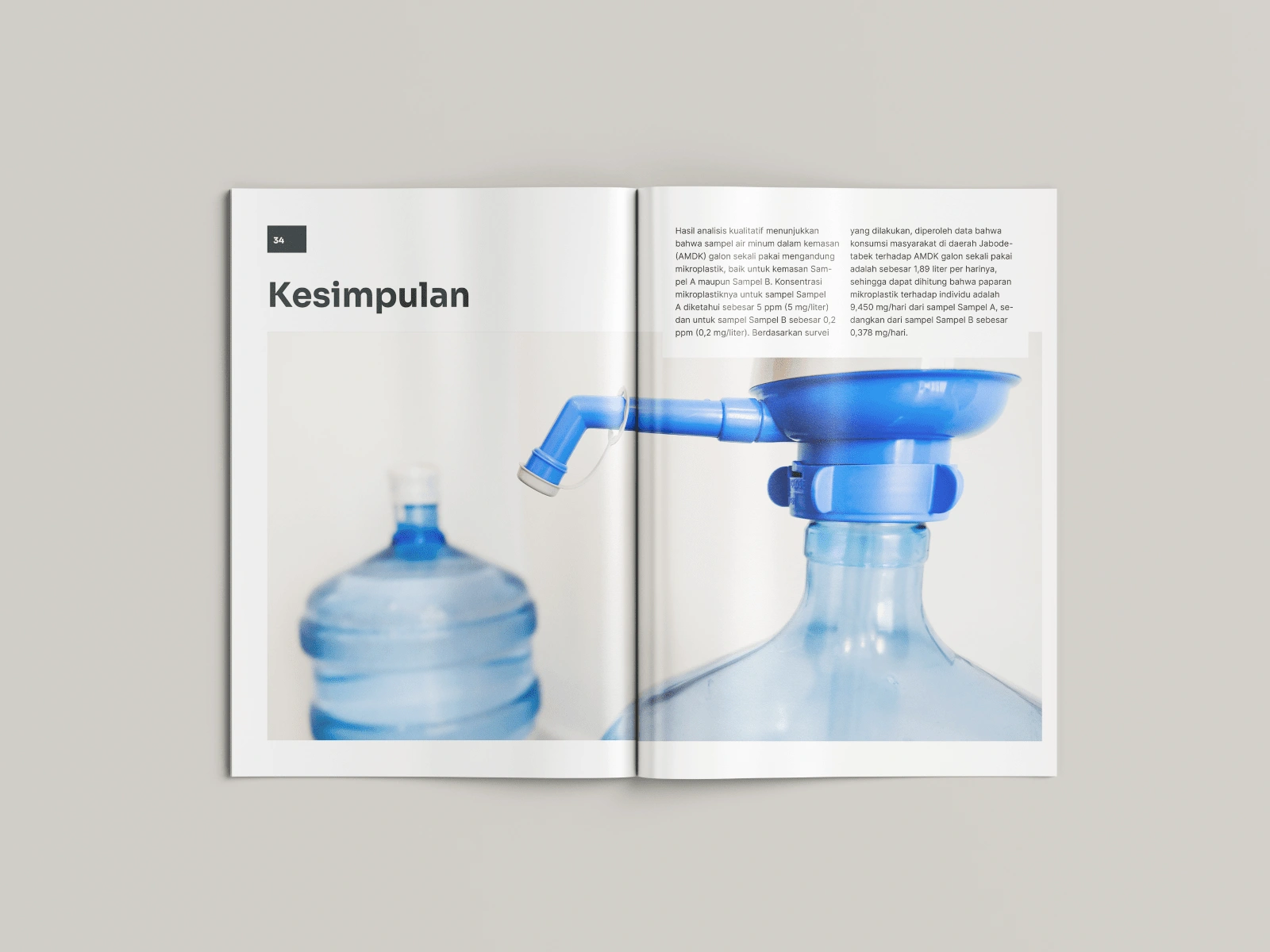
Page 34 - 35
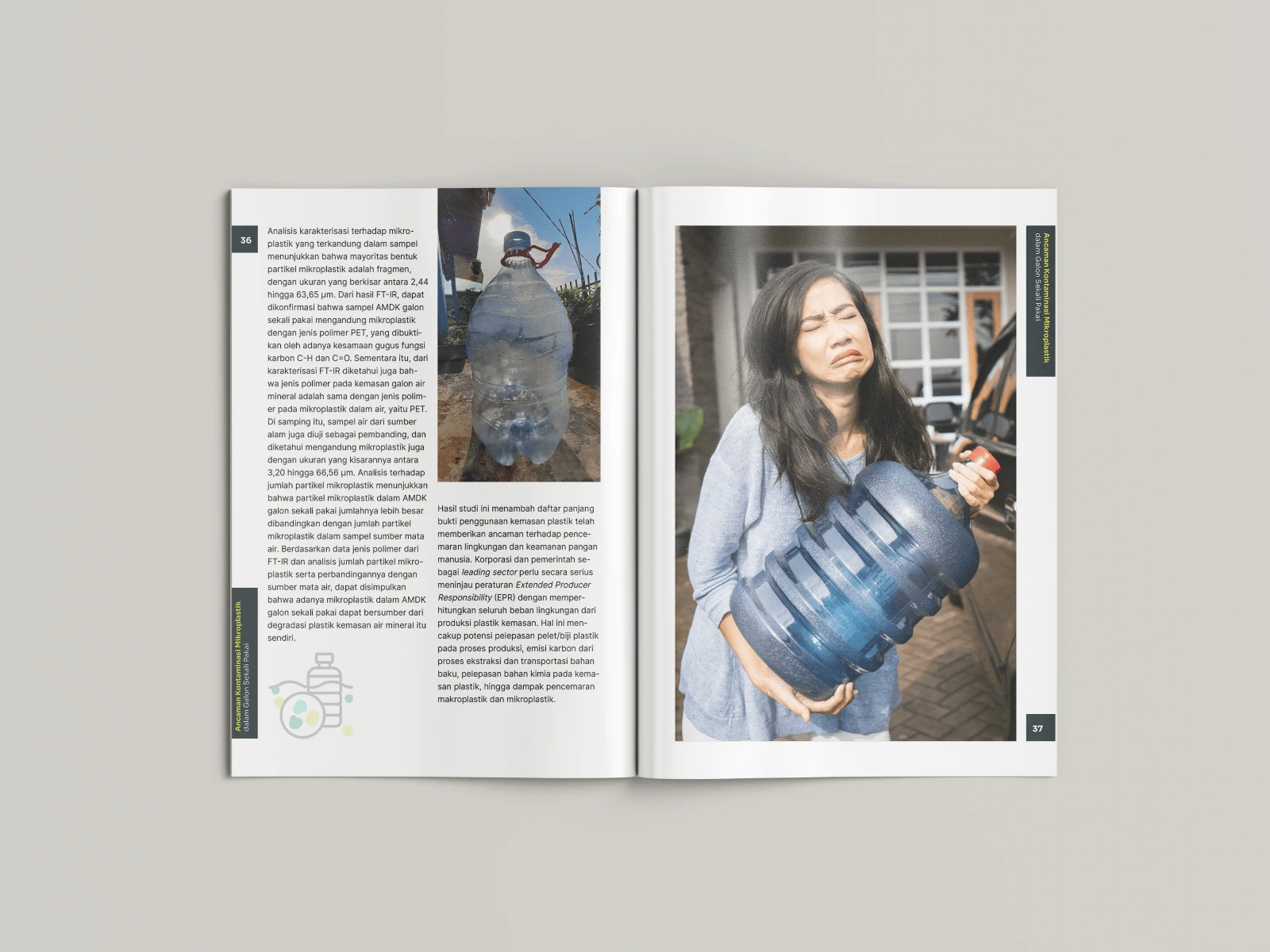
Page 36 - 37
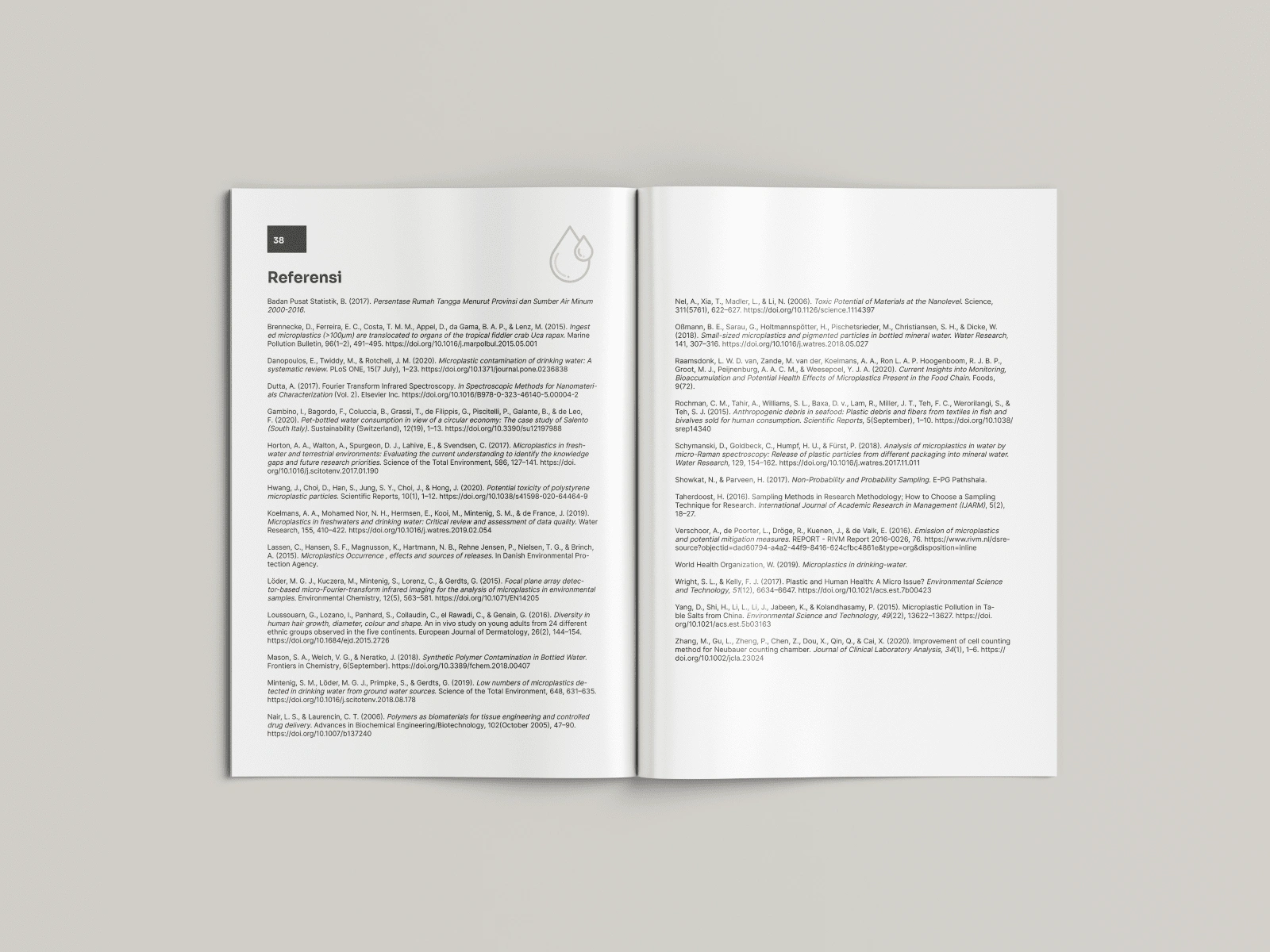
Page 38 - 39
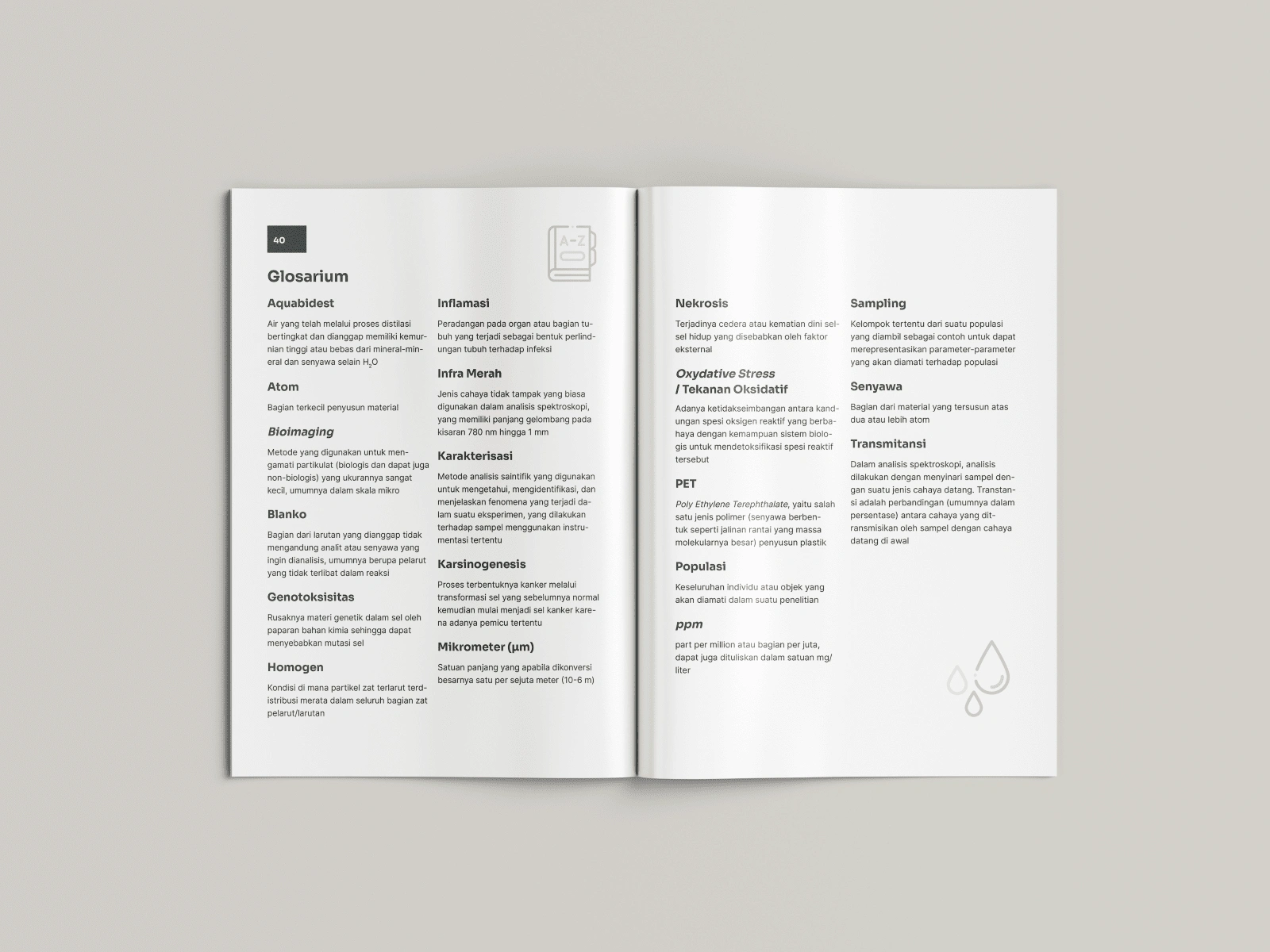
Page 40 - 41
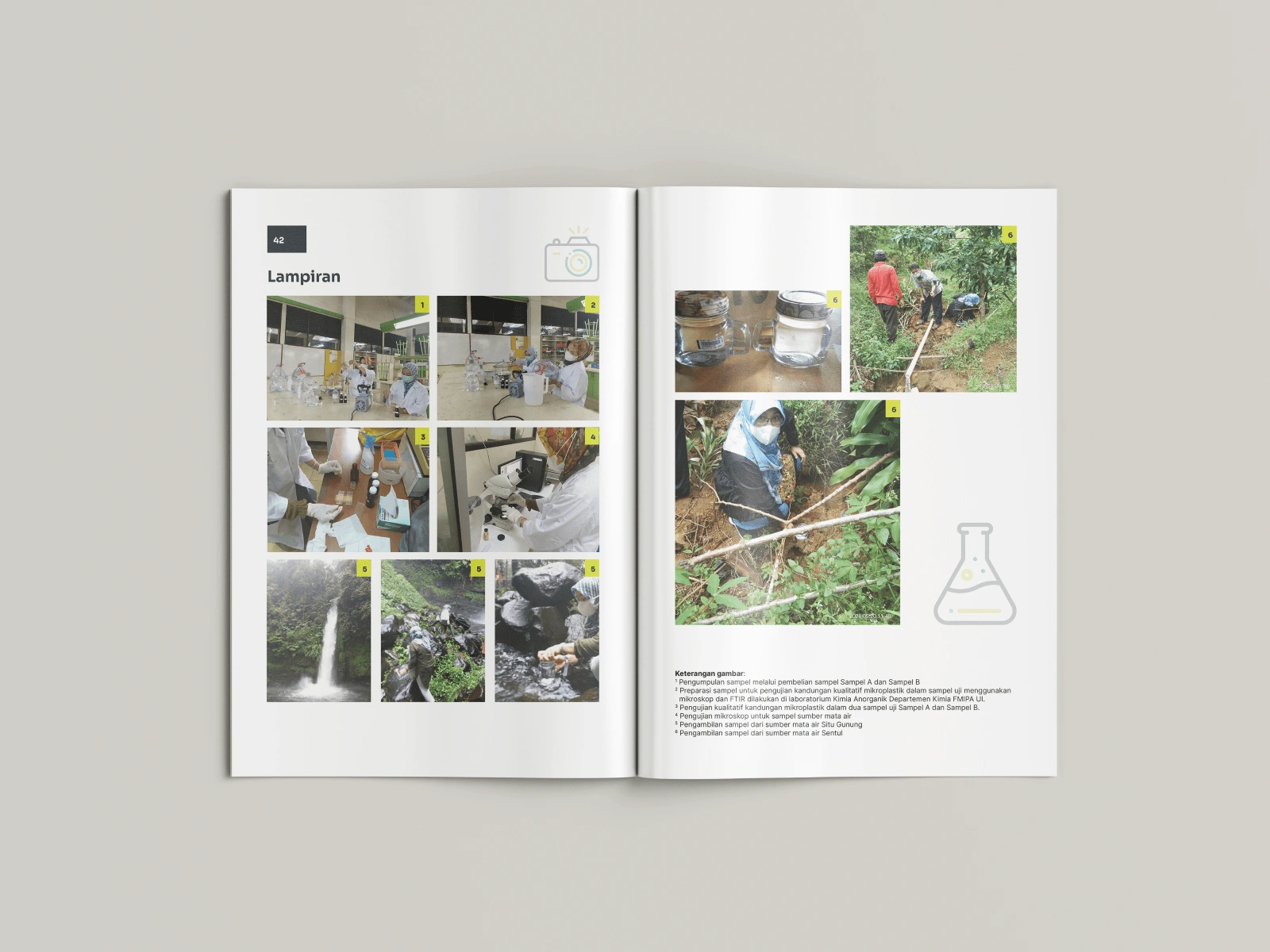
Page 42 - 43
Like this project
Posted Mar 25, 2025
I designed report with 39 pages for Greenpeace in 2021. Contains many graphics and table with unique layout variant for better reading experience.
Likes
2
Views
43
Timeline
Oct 4, 2021 - Oct 29, 2021
Clients

Greenpeace








